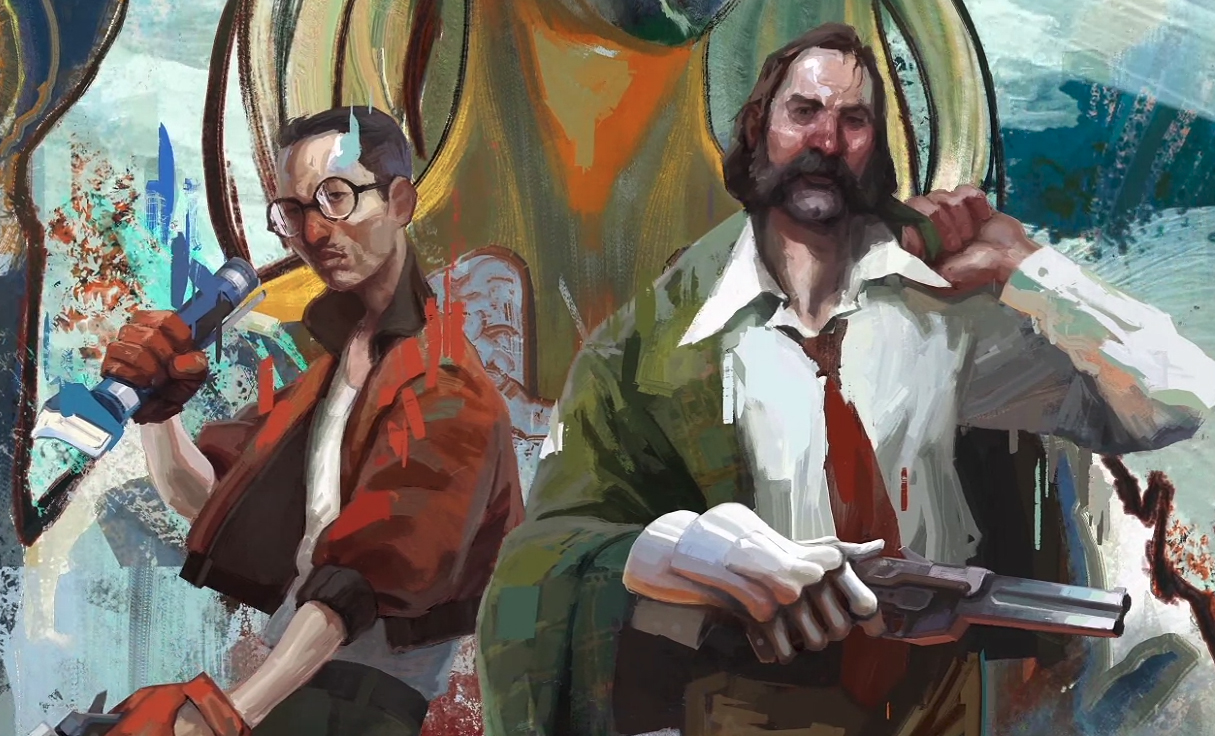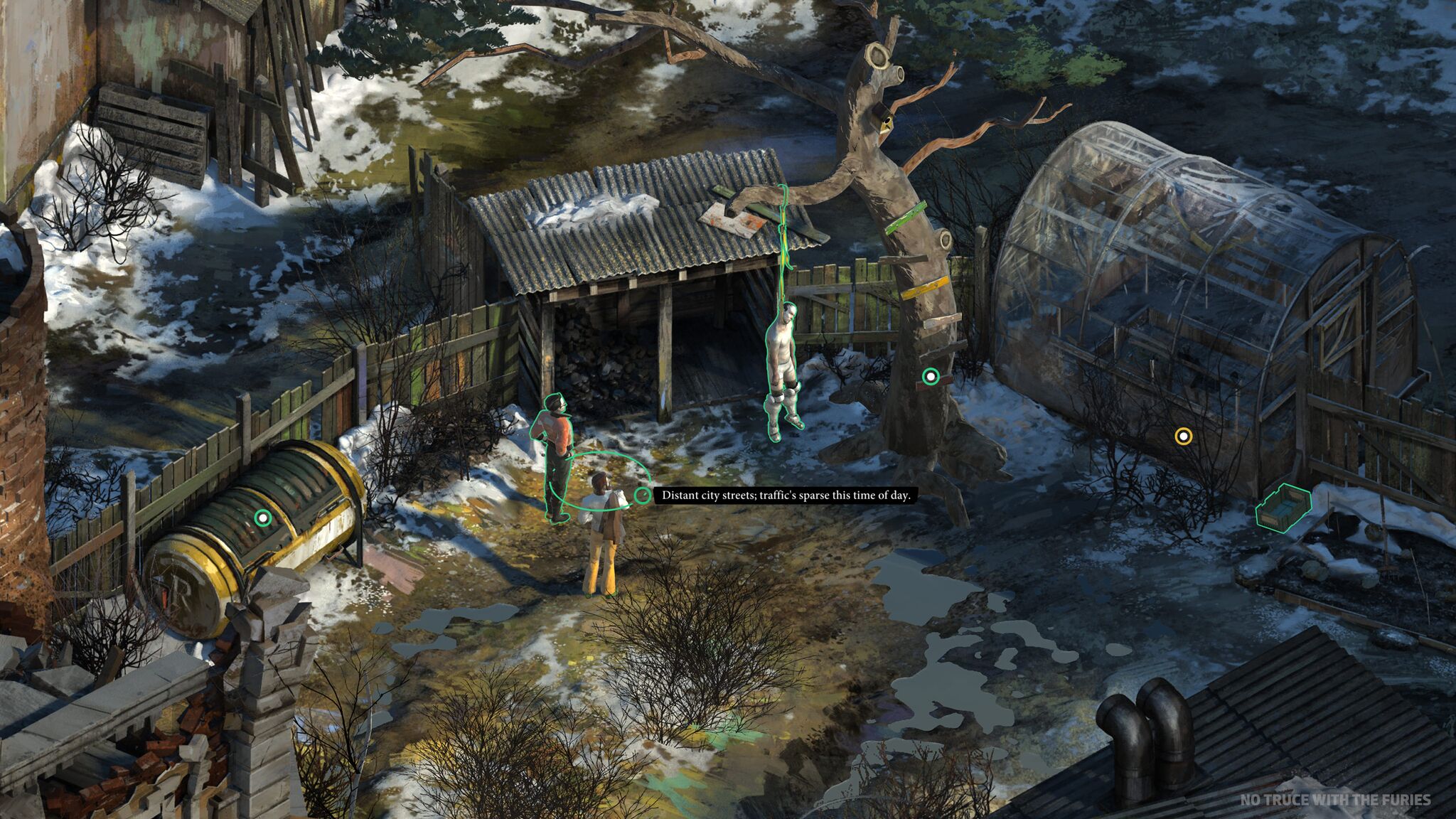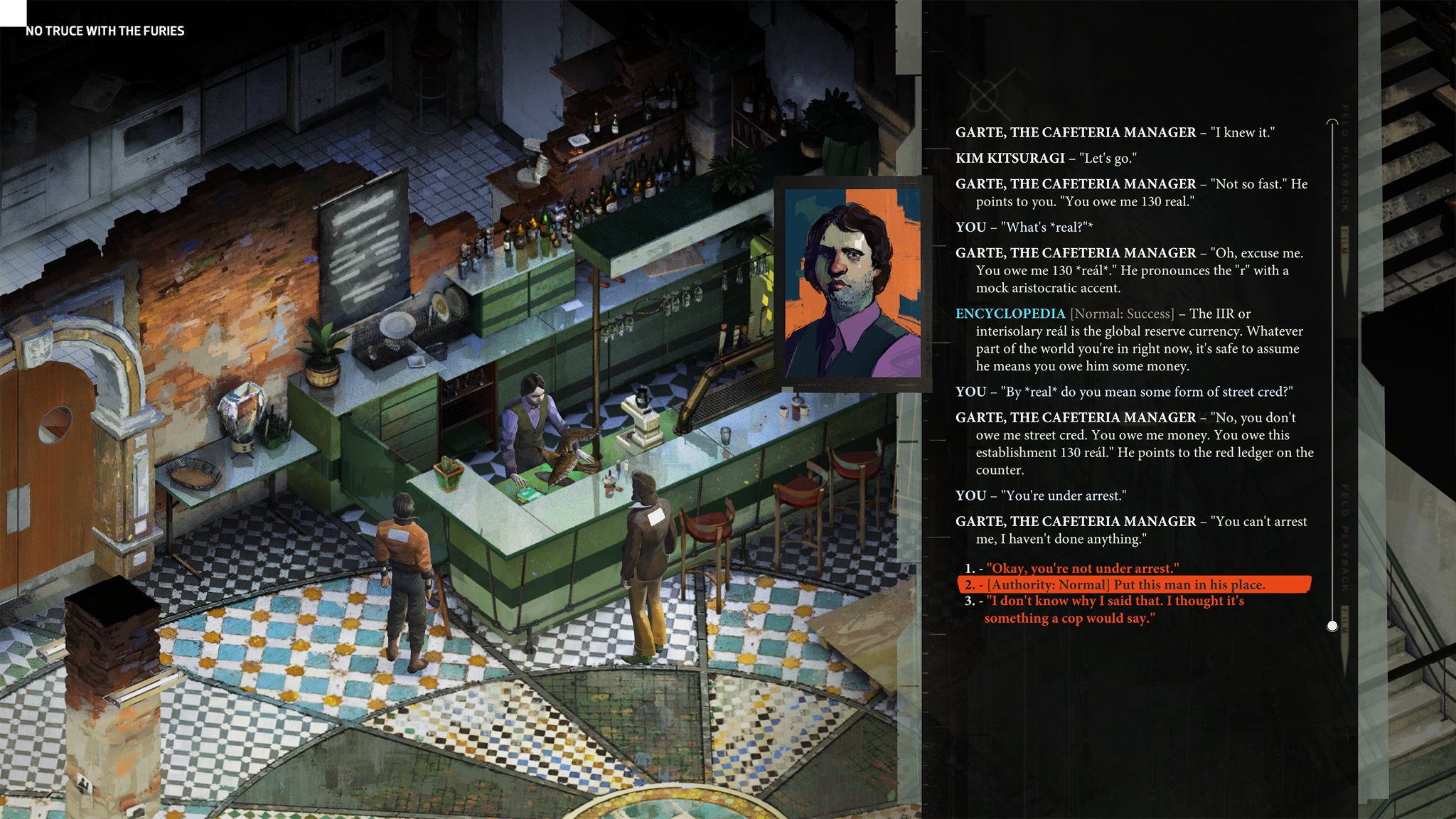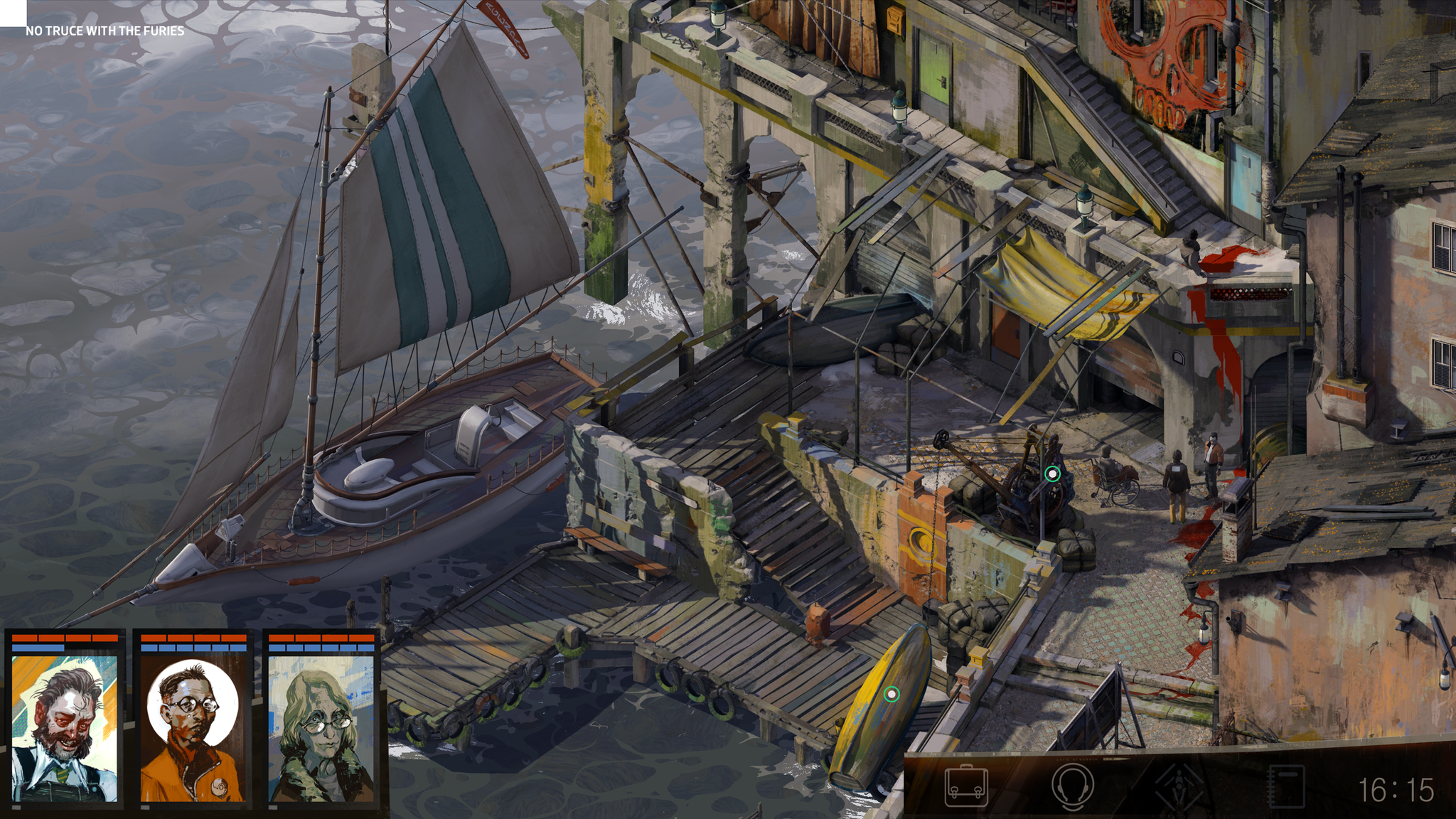Solve the case or go crazy trying in isometric RPG Disco Elysium
This gritty cop story takes a deep dive on narrative.

I am a cop. At least, I suspect I am because the woman outside the hotel room I woke up in told me so. I don’t actually remember being a cop. Or how the hotel room window got shattered. Or why my face looks like I lost a fight with the pavement. Or my own name. I don’t remember anything about the case I’m supposed to be solving: a dead body strung up in a tree outside the hotel I’m staying in. Not a good day to be me, it seems, but if I'm someone who can solve murders, maybe I'm the type of person who can solve the mystery of his own identity. Maybe.
Disco Elysium begins with these amnesic questions. You open the isometric RPG in the retro-futuristic city of Revachol, an ugly urban locale whose dilapidated architecture and stone-eyed citizens are rendered with the beautiful long brush strokes and contrasting colors of an oil painting. Disco Elysium is being developed by Estonian studio ZA/UM, from its new location in London.

A case of disco fever
After clicking around to collect my clothes and limbs, I find my way downstairs where a morose-looking bartender is itching to hassle me. I gather from his scorn and sarcasm that I should have been dealing with the dead body in the tree out back instead of drinking myself stupid and losing my memory. There’s someone waiting for me at the door, another cop, who doesn’t seem too impressed with the fact that I’ve gotten nothing done. I pretend that I’m still somehow in control of the situation by just giving deadpan answers to his questions without elaborating. “Have you gotten the body out of the tree?” I look through my dialogue options: outright lying, deflecting, or just telling him no. “I haven’t,” I say, as if I might have a reason for it. He doesn’t seem to buy it.
We head through the back alley into an ugly lot where a body is hanging from a single tree in gross contrast with the colorful planks of wood nailed to its trunk for children to climb. The only child nearby is not interested in climbing trees. He’s throwing rocks at the body and shouting obscenities at me, and isn't in the mood to answer questions. When I try to assert my authority, he and his friend scream bloody murder that I’m about to assault them. I retreat with my partner/handler, whose name I can't remember any more than my own.
My only solace is that by choosing a character type focusing on intellect I seem to have a natural ability to read the crime scene. My partner can’t make anything out of the mess of footprints at the base of the tree but I take a shot at it. The right side of the screen records our conversation history, with my options to either make an uneducated guess or attempt a skill check against my intellect below. Thanks to my character class, I handily pass the skill check and identify eight separate sets of shoes and their sizes. One has a funny gait. One weighs significantly more than the others. That one was carrying the victim, most likely. After walking back and forth several times, the group stood around the tree together. A lynching, I decide.

A very particular set of skills
Rather than lengthy exposition, Disco Elysium delivers the bulk of its information through dialogue. Sometimes it’s a conversation with an NPC, but just as often it’s a discussion with the protagonist’s own mind. This concept extends to Disco Elysium’s character attributes, which aren't the standard strength, dexterity, and intelligence. Your detective invests in improving his mental acuity. He may become a skilled orator who excels in persuasion or he can roll a little more Holmesy to dissect visual clues around him. The downside is that the detective’s warring inner narrative has ways of forcing itself out.
While interviewing the disgruntled bartender who is unfortunate enough to have caught my attention, one of my gut instincts speaks up in the dialogue window to insist this guy is trying to hide something. Push him, it demands. I do, and it turns out my hunch is ill-informed. I press the poor man harder and harder, unable to stop myself from declaring that he in fact strung up the fellow in the tree. The bartender grows more disgruntled until I’ve made a fool of myself in front of the partner/handler who’s here to nudge me along.
Keep up to date with the most important stories and the best deals, as picked by the PC Gamer team.
The skills you invest in give you impressive abilities but may also urge you to express yourself in inconvenient ways.
There’s an inverse relationship between your mental skills and your ability to trust them. Like my aggressive attempt to grill the bartender, the authoritarian side of your detective’s personality may believe that someone is disrespecting your authority and suggest you put them in their place. Is it necessary? Or are you just a man with a hammer who sees a bunch of nails?
Making a mockery of yourself is a recurring theme in Disco Elysium. ZA/UM’s writing team has found that the detective’s failure is often more amusing than his successes. The skills you invest in give you impressive abilities but may also urge you to express yourself in inconvenient ways. I knew that accusing the bartender was probably a dead-end conversation but as the detective accrues more skills, each pushing their own agenda inside his head, distinguishing a wild theory from an astute observation may become more difficult.

Disco Elysium’s other novel concept is the Thought Cabinet, a kind of inventory from which the player can equip thoughts and ideas they’ve collected to the detective’s active memory. Ruminating on these thoughts in various combinations can lead to new realizations about yourself or about the case. They can also irreversibly change your personality.
ZA/UM’s driving force, both in the game’s design and it’s development, is the idea of the alternate present. While the city of Revachol is a vision of the present where cars and phones never took on their final sleek and sexy physical forms, ZA/UM imagines an alternate present of our own where the classic Infinity Engine RPGs of the '90s spawned games obsessed not with action combat but narrative delivery. They imagine themselves having followed the path not taken, skipping over some twenty years of theoretical evolution, and arriving at what they believe RPGs would have looked like in 2018 under different influences. It’s an ambitious thesis, but one which makes Disco Elysium feel different from your standard RPG even in the short time I spent with it at PAX East.

Lauren has been writing for PC Gamer since she went hunting for the cryptid Dark Souls fashion police in 2017. She accepted her role as Associate Editor in 2021, now serving as self-appointed chief cozy games and farmlife sim enjoyer. Her career originally began in game development and she remains fascinated by how games tick in the modding and speedrunning scenes. She likes long fantasy books, longer RPGs, can't stop playing co-op survival crafting games, and has spent a number of hours she refuses to count building houses in The Sims games for over 20 years.

